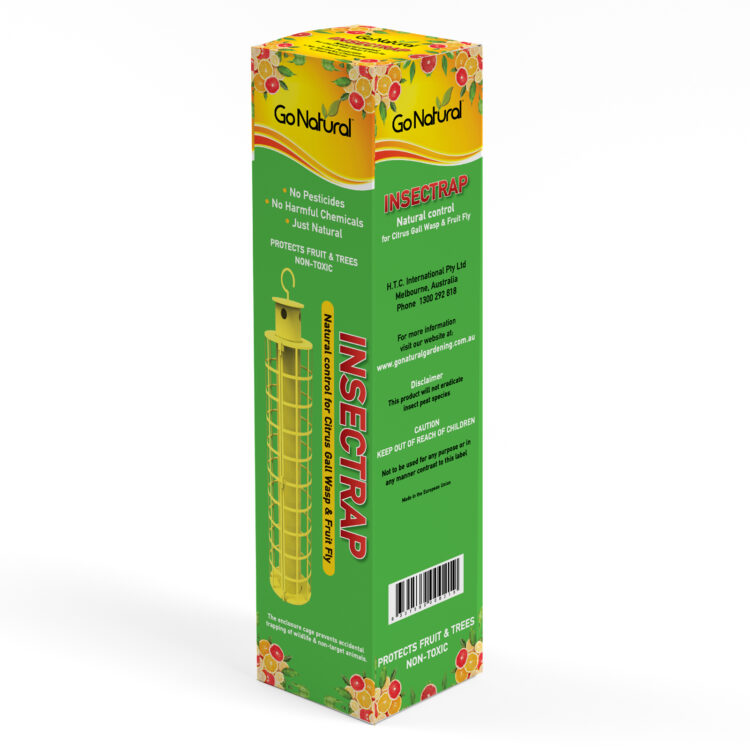How to Quickly Stop Citrus Gall Wasp: Methods That Work
Citrus gall wasp (Bruchophagus fellis) is a pest that affects citrus trees in Australia.
The wasp bores into the lemon tree to lay its eggs, and the larvae feed on the tree’s sap – not only are these unsightly, but they can also make the fruit unusable.
It also causes the tree to produce galls, which are abnormal growths that can deform and kill the tree.
If you have a citrus tree in your garden – especially a lemon or grapefruit tree, it’s important to be aware of the citrus gall wasp and the damage it can do.
There are several effective methods for controlling citrus gall wasps and in this blog post, we will discuss how to quickly stop citrus gall wasps from wreaking havoc on your citrus trees.
What are Citrus Galls?
A citrus gall is an abnormal growth that forms on citrus trees in response to the egg-laying activities of citrus gall wasps.
As new citrus trees or branches grow in the spring, citrus wall gasps lay their eggs inside the new growth.
The citrus gall wasp larva feeds on the tree’s sap, causing woody galls to form around the larva.
Citrus galls can be small and round or large and elongated, and they can vary in colour from green to brown to black.
What are the Effects of Citrus Gall Wasp?
Citrus gall wasps not only deform citrus trees but can also weaken them over time – making infested citrus trees susceptible to reduced fruit size and overall tree yield.
Citrus gall wasps can also cause citrus trees to produce fruit that is deformed, discoloured, and of poor quality.
How to Quickly Stop Citrus Gall Wasp: Methods That Work
Although it is not possible to completely eradicate citrus gall wasps, there are several methods that can be used to effectively control them.
By combining different control methods, you can quickly stop citrus gall wasps from causing further damage to your citrus trees.
Physical Control Methods
These are pest control methods that involve creating an unsuitable environment for pests, physically preventing them from reaching citrus trees or killing them.
1) Insect Traps
Insect traps can be used to physically capture citrus gall wasps before they have a chance to lay their eggs on citrus trees.
There are a variety of insect traps available, however, citrus gall wasps traps have proven to be the most effective.
It is important to open the top of the traps to allow them to release the scents which are attractive to citrus gall wasps.
These traps are coated with a sticky substance that citrus gall wasps become stuck to when they land on them.
The traps include an enclosure cage to prevent accidentally capturing wildlife and non-target animals.
Insect traps should be placed near citrus trees in early spring before the citrus gall wasp population starts to increase.
These traps typically last 3 -4 months and need to be replaced when the scent chemical wears out.
Check traps regularly and dispose of any captured pests. We recommend one citrus gall wasp trap per tree. You can purchase them here.
Cultural Control Methods
These are the methods that citrus growers can use to prevent citrus gall wasp infestation:
1) Pruning
Prune off citrus galls as soon as they are noticed. This will prevent the citrus gall wasp from completing its life cycle and laying more eggs.
To prevent spread during the spring, prune out the galls before the end of winter. After pruning there are a few ways to get rid of the pruned galls:
– Burning: Destroy the galls by burning them
– Solarizing: Place the galls in a plastic bag and put them out in the sun for at least four weeks.
– Burying: Bury the galls deep in the ground so that citrus gall wasps cannot excavate them.
Avoid putting them in green waste without properly destroying citrus gall wasps can lay their eggs in the green waste and spread to other citrus trees.
2) Horticultural Oils
Horticultural oils can be used to stop citrus goal wasps from laying eggs. This is because they avoid laying eggs on surfaces that have oil on them.
Horticultural oils can also be used to stop adult citrus gall wasps from laying their eggs into new plant grows in the spring.
It is a good idea to spray oils on new plant growths immediately they appear to prevent infestation by citrus gall wasps.
Horticultural sprays such as natural organic certified horticultural oils and white oils can be used to prevent citrus gall wasps.
3) Reduce Fertilising
Citrus gall wasps are more likely to lay their eggs on trees that have been over-fertilised.
This is because the new growth that appears as a result of over-fertilising is especially attractive to citrus gall wasps.
As a general rule, it is best to avoid using high nitrogen fertilisers on citrus trees.
If citrus trees are over-fertilised, flushing the soil with water can help to reduce the amount of nitrogen in the soil.
4) Make the Environment Less Moist
Infested citrus plants thrive in most environments. However, citrus gall wasps are less likely to lay their eggs in dry environments.
To make the environment less moist, citrus growers can use a watering method that doesn’t support high moistness levels such as drip irrigation compared to sprinkling methods
Biological Control Methods – Natural Enemies
There are also several biological control methods that can be used to stop citrus gall wasps.
For example, beneficial insects like Megastigmus brevivalvus and M. trisulcus are two parasitoid wasps that lay their eggs inside citrus gall wasp larvae.
The Megastigmus wasp larva then feeds on the citrus gall wasp larva, eventually killing it.
Unfortunately, these parasitoid wasps are not always effective at controlling citrus gall wasps because they can’t survive in very cold environments.
Chemical Controls
Chemical controls are usually the last resort for citrus growers because they can be harmful to the environment and human health.
There are several different insecticides that can be used to kill citrus gall wasps, but they are often not available to the general public because of their high toxicity levels.
Special permits are required to get access to these chemicals. However, Confidor® Guard (Imidacloprid) and Samurai® (Clothiandin) are insecticides that can be used to control citrus gall wasps.
Calcined Kaolin clay also works as an effective deterrent against citrus gall wasps. It works by creating a physical barrier to deter citrus gall wasp adults from laying eggs on citrus trees.
It is important to note that kaolin clay must be reapplied after rain or irrigation because it will wash off.
To use calcined kaolin clay, mix it with water and spray it onto the galls. The calcined kaolin clay will form a hard coating over the galls, suffocating the larvae inside.
Citrus growers can also use a combination of different control methods to stop citrus gall wasps.
For example, they could use horticultural oils to prevent citrus gall wasps from laying eggs and then use biological control methods to kill the larvae.
Or they could use calcined kaolin clay to deter citrus gall wasps and then use chemical controls as a last resort.
Whichever method you choose, it is important to act quickly to stop citrus gall wasps
Conclusion
Citrus gall wasps are a serious problem for citrus growers because they can cause extensive damage to citrus trees.
Fortunately, there are several different methods that can be used to stop citrus gall wasps.
The most effective method will depend on the severity of the infestation and the environment where the citrus trees are grown.
If you think you have a citrus gall wasp problem, it is important to act quickly to prevent the infestation from getting worse.
You can get a citrus gall wasp trap to get started with controlling the citrus gall wasp infestation.
If you have any questions, please feel free to contact us, and we will be glad to help you.



